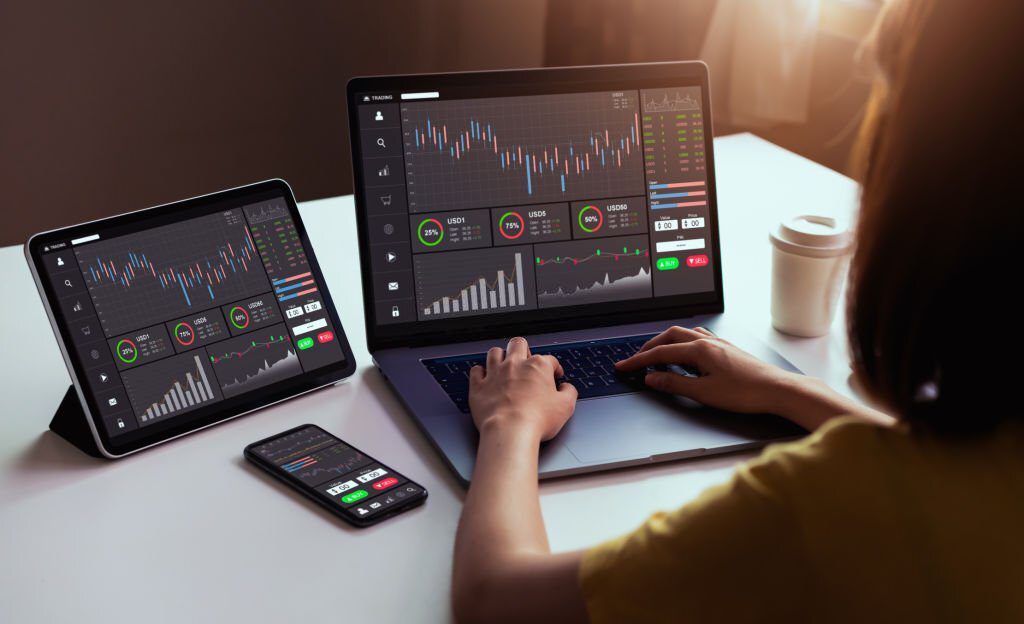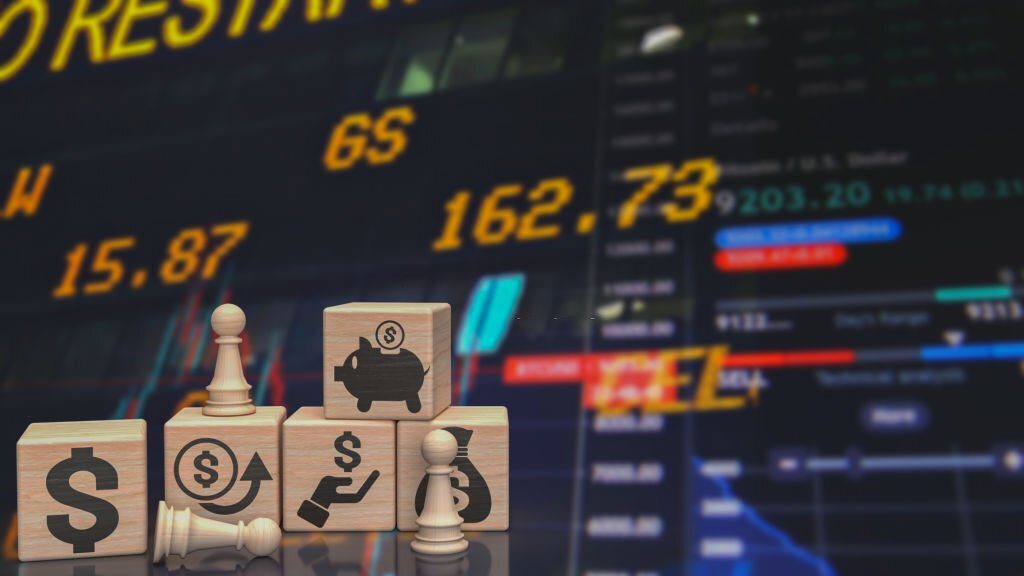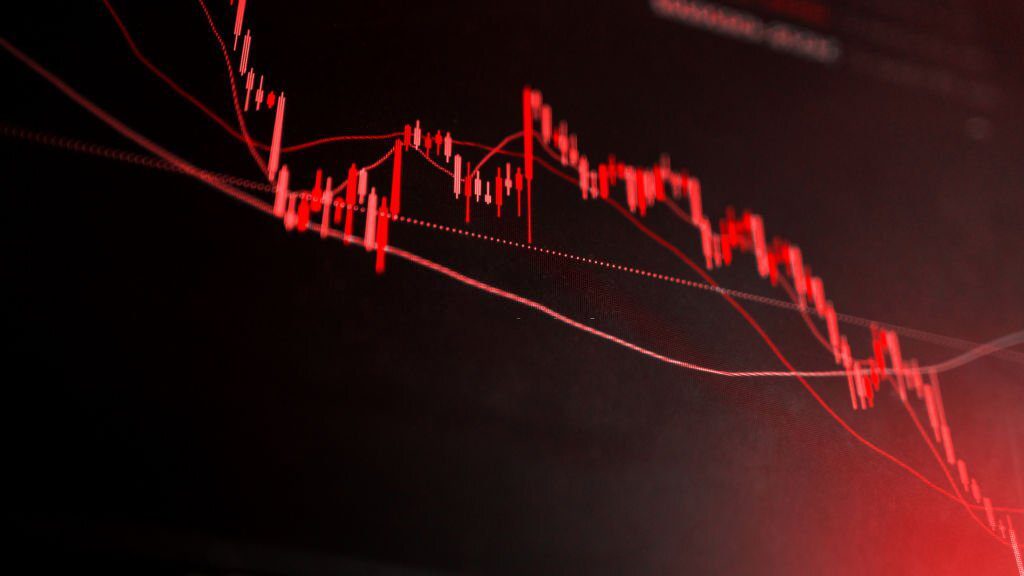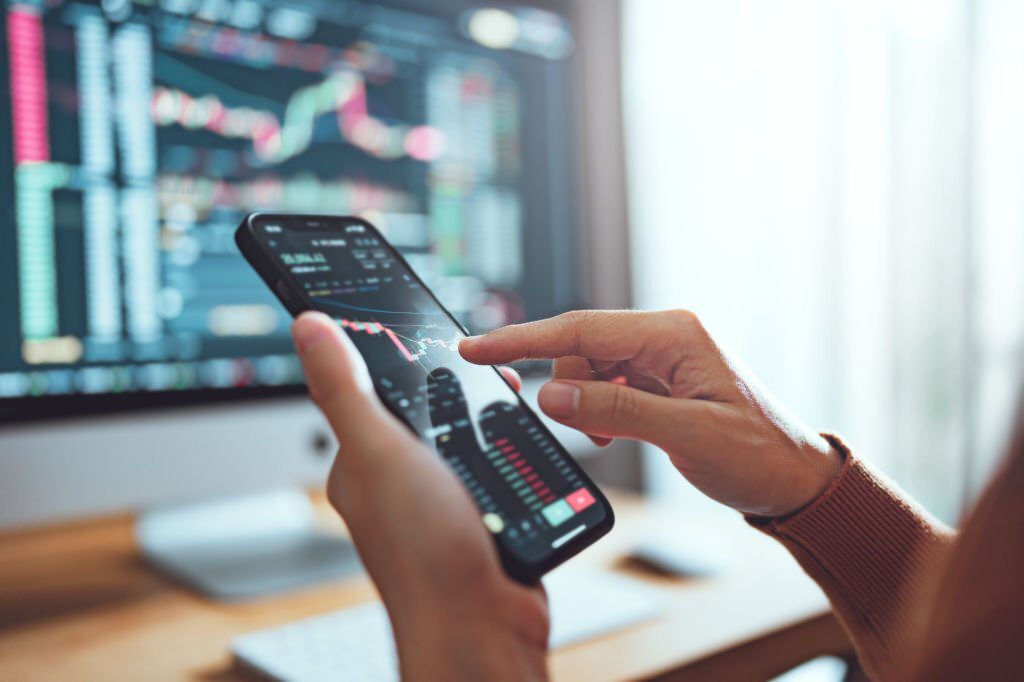[ad_1]

The foreign exchange market, commonly known as Forex, has gained significant popularity among traders due to its potential to generate substantial profits. With its immense size and round-the-clock accessibility, Forex offers a unique opportunity for individuals to participate in the global currency trading landscape.
The Forex market refers to the decentralized marketplace where participants trade currencies. It is the largest and most liquid financial market in the world, with an average daily trading volume exceeding $6 trillion. Forex operates over-the-counter (OTC), in contrast to conventional stock markets, enabling dealers to communicate directly with one another without a centralized exchange.
The purpose of this article is to examine the issue of whether trading forex is profitable for investors. Readers will gain a thorough understanding of the profitability potential in Forex trading by examining the various facets of the Forex market, analyzing the pros and cons, evaluating the key factors for profitability, discussing the challenges and pitfalls, and exploring successful trading strategies and real-life case studies.
Also Read: The 9 Best Day Trading Courses in 2023
Understanding the Forex Market

The Forex market facilitates the buying and selling of currencies, pairing them against each other to determine their relative value. Participants engage in currency trading to take advantage of fluctuations in exchange rates, aiming to profit from the rise or fall in the value of one currency against another.
The Forex market involves a diverse range of participants. Central banks play a significant role by managing their countries’ monetary policies and intervening in the market to stabilize their currencies. Commercial banks facilitate currency transactions for various purposes, including international trade and investment. Institutional investors, such as hedge funds and pension funds, participate in Forex trading to diversify their portfolios. Retail traders, including individuals and small businesses, make up a growing segment of the market thanks to technological advancements and improved accessibility.
Currency exchange rates are influenced by a multitude of factors. Economic indicators, such as GDP growth, inflation rates, and employment data, provide insights into a country’s economic health, impacting the value of its currency. Geopolitical events, such as elections, policy decisions, and trade disputes, introduce uncertainties that can cause volatility in currency markets. Additionally, market sentiment, influenced by factors like investor confidence, risk appetite, and market psychology, can drive currency movements.
Pros of Trading Forex

High Liquidity and Market Accessibility
The Forex market’s liquidity ensures that traders can enter and exit positions with ease, even with large trade sizes. The market operates 24 hours a day, five days a week, allowing traders to respond to market developments promptly.
Potential for Substantial Profits Due to Leverage
Forex trading offers leverage, allowing traders to control larger positions with a fraction of the capital required. This amplifies potential profits if trades move in the trader’s favor. However, leverage also increases the risk of losses.
24/5 Market Availability and Flexibility
Forex trading is not bound by geographical limitations or fixed trading hours, making it accessible to traders worldwide. This flexibility allows individuals to participate in trading activities alongside their regular jobs or commitments.
Cons of Trading Forex

High Volatility and Risk
The Forex market is known for its inherent volatility, resulting from various economic and geopolitical factors. Volatility presents opportunities for profits, but it also carries a higher level of risk. Sudden market movements can lead to significant gains or losses, and traders must be prepared to manage and mitigate these risks.
Complex Market Dynamics and Technical Analysis
A thorough understanding of market dynamics, including the variables that affect currency movements, as well as the capacity to interpret price charts, indicators, and patterns, are essential for successful forex trading. Technical analysis is essential for locating potential entry and exit points, but it takes practice and ongoing learning to grasp.
Psychological Challenges and Emotional Discipline Required
Trading foreign exchange profitably goes beyond technical analysis and strategy. To handle the psychological difficulties that occur, such as fear, greed, and emotional bias, traders must have considerable emotional restraint. Impulsive trading can be the outcome of emotional decision-making and may lead to losses.
Determining Profitability in Forex Trading

Analysis of Key Factors for Profitable Trading
To achieve profitability in Forex trading, traders need a solid foundation of knowledge. This includes understanding economic indicators, central bank policies, and global market trends. Technical analysis skills are essential for identifying patterns and trends in price charts. Moreover, risk management is crucial to preserve capital and limit potential losses.
A well-defined trading strategy is vital for profitability. Traders must establish clear entry and exit rules based on their analysis and risk tolerance. Determining a suitable risk-reward ratio helps ensure that potential profits outweigh potential losses. Position sizing strategies, such as the use of stop-loss and take-profit orders, contribute to effective risk management.
Traders employ various tools and indicators to aid their decision-making process. Charts, including candlestick and line charts, help visualize price movements. Trend lines assist in identifying market trends while moving averages and oscillators provide insights into momentum and overbought/oversold conditions.
Evaluating Success Metrics
Consistency is a crucial metric for evaluating trading profitability. Short-term gains may be achieved through occasional successful trades, but long-term sustainability requires a consistent approach. Profitable traders focus on maintaining an overall positive return over time rather than relying solely on sporadic wins.
Effective risk management is vital to long-term profitability. Traders should employ strategies to limit losses, such as setting stop-loss orders and adhering to proper position sizing. By preserving capital, traders can continue participating in the market and seize profitable opportunities.
The Forex market is dynamic, and successful traders adapt their strategies to changing conditions. They adjust their approach accordingly by monitoring market trends, news events, and economic indicators. Flexibility and the ability to recognize when market conditions warrant adjustments are crucial for maintaining profitability.
Psychological and Emotional Challenges in Forex Trading

Dealing with Greed, Fear, and Emotional Bias
Emotions have a big impact on forex trading and can make it less profitable. Impulsive trading decisions might result from the fear of missing out (FOMO) or from the fear of losing. Similar to how traders may overextend themselves or take needless risks due to greed. Confirmation bias and anchoring bias are two examples of emotional biases that can skew judgment and produce bad decisions.
Handling Losses and Avoiding Revenge Trading
Trading inevitably involves losses, and how traders respond to them can affect their total profitability. Successful traders avoid vengeance trading, where they attempt to make up for losses by making rash and poorly thought-out trades and instead embrace losses as a necessary part of the learning process. Making rational decisions based on analysis rather than emotional reactions requires emotionally distancing oneself from losses in order to sustain discipline.
Common Mistakes to Avoid in Forex Trading

Overtrading and Lack of Discipline
The term “overtrading” describes excessive trading that lacks a sound analysis or explanation. It can result in higher transaction costs, overstretching oneself, and rash actions. Overtrading’s dangers can be avoided by exercising restraint and adhering to a clear trading strategy.
Ignoring Risk Management Principles
Neglecting risk management principles can be detrimental to profitability. Failing to set appropriate stop-loss orders, risking too much capital on a single trade, or neglecting position sizing can lead to significant losses. Successful traders prioritize risk management and protect their capital.
Chasing Trends and Failing to Adapt to Market Conditions
Chasing trends without proper analysis or understanding market conditions can result in losses. Market trends can change, and traders must be adaptable. Failing to adjust strategies based on evolving market dynamics and stubbornly holding onto positions can hinder profitability.
Successful Forex Trading Strategies and Tips

Exploring Popular Trading Strategies
- Trend following involves identifying and riding established trends in the market. Traders look for patterns of higher highs and higher lows in an uptrend or lower highs and lower lows in a downtrend. They enter trades in the direction of the trend, aiming to capture substantial moves.
- Breakout trading involves identifying key support and resistance levels and entering trades when the price breaks out of these levels. Traders anticipate increased volatility and potential continuation of the price movement beyond these levels.
- Range trading involves identifying price ranges or channels where the price bounces between support and resistance levels. Traders aim to buy at support and sell at resistance, profiting from the repetitive nature of price movements within the range.
Essential Tips for Profitable Trading
- Backtesting and practicing on demo accounts: Before committing to real capital, traders should backtest their strategies using historical data to assess their effectiveness. Additionally, practicing on demo accounts allows traders to gain experience and refine their approach without risking real money.
- Maintaining a trading journal for analysis and improvement: Keeping a trading journal helps track trades, document strategies, and analyze performance. Traders can review their journals to identify patterns, strengths, and weaknesses, allowing for continuous improvement and learning from past mistakes.
- Continual learning and staying updated with market news and developments: Since the forex market is always changing, successful traders place a high priority on ongoing education. They maintain current market information, economic data, and geopolitical developments that could affect currency markets. Trading professionals can adapt to shifting situations and improve their methods through ongoing education.
Conclusion

In short, knowledge, strategy formulation, discipline, and risk management are all necessary for profitable Forex trading. Even though there is a chance for profit, aspiring traders must approach the market with prudence and a realistic outlook. The capacity to succeed in forex trading involves commitment, ongoing learning, and the flexibility to adjust to shifting market conditions.
Traders can improve their chances of success by breaking down the Forex market, comprehending its complexity, and putting sensible methods into practice. But it’s crucial to recognize the risks involved and to control one’s emotions and risk exposure. For those that approach it with the correct perspective and dedication to constant growth, forex trading can be a lucrative activity.
Forex trading can be beneficial for traders, but it necessitates a detailed knowledge of the market, methodical application of methods, and careful risk management procedures. Traders may navigate the Forex market with more assurance and improve their prospects of long-term financial success by combining information, skills, and a realistic approach.
FAQs
What starting capital do I need to trade Forex?
Various sums of money may be required to begin trading Forex. The minimum deposit required to create a trading account can be as low as $100 and as high as $10,000, according to many brokers. It’s critical to give serious thought to your risk appetite and to only invest money you can afford to lose.
Can I trade Forex on a limited budget?
You can trade Forex with a tiny account, yes. But it’s important to control your risk and avoid putting a large chunk of your wealth at risk with every trade. Smaller accounts may be more vulnerable to transaction costs’ effects, necessitating cautious position size and risk management.
How long does it take to start making money trading Forex?
Getting consistently profitable at forex trading takes different amounts of time for different people. It depends on elements, including the trader’s commitment to training, experimentation, and experience. It is best to approach Forex trading with a long-term perspective, putting more of an emphasis on constant progress than on pursuing quick gains.
Can robots or automated trading systems ensure success?
Robots or expert advisers, both of which are terms for automated trading systems, can help execute trades in accordance with predetermined rules. They do not, however, ensure success. The quality of automated systems’ plans and their capacity for change will determine how effective they are. Any automated trading system should be carefully examined and tested before being relied upon.
Are there any expedient ways to succeed in Forex trading?
When trading Forex, there are no shortcuts to success. Knowledge, experience, and discipline are all necessary. Refrain from falling for get-rich-quick schemes or guarantees of profits. Long-term success is a result of setting up a strong foundation, engaging in prudent risk management, and constantly developing your abilities.
[ad_2]
Source link


